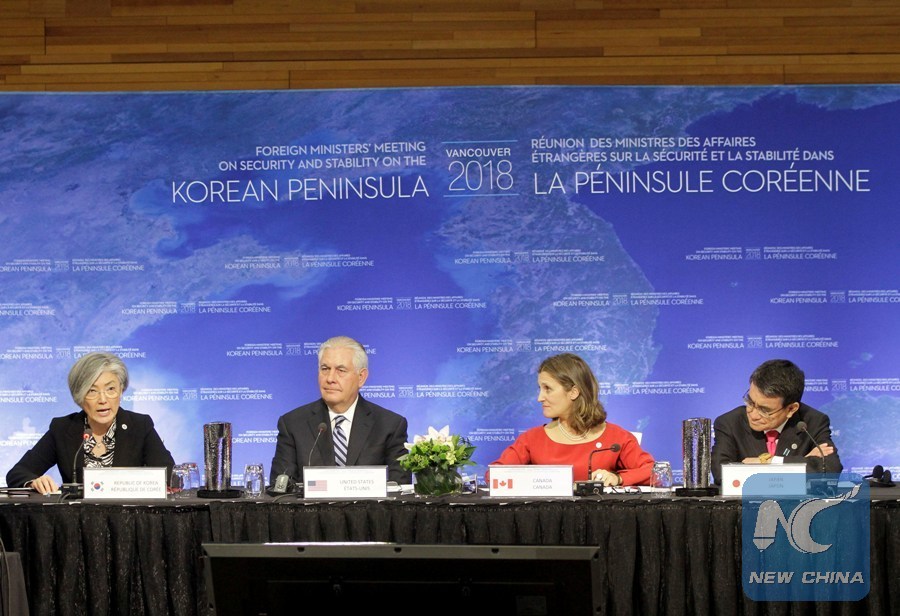
Delegates from 20 countries participate in the Foreign Ministers' Meeting on Security and Stability on the Korean Peninsula hosted by the United States and Canada in Vancouver. (Xinhua/Liang Sen)
VANCOUVER, Jan. 16 (Xinhua) -- Foreign ministers from 20 nations on Tuesday said they would not accept a nuclear-armed Democratic People's Republic of Korea (DPRK) and maintain maximum pressure against Pyongyang at a meeting in Vancouver, which was criticized by China and Russia as illegal and counterproductive.
Canadian Foreign Affairs Minister Chrystia Freeland reiterated her country's commitment to a diplomatic solution to the Korean Peninsula nuclear crisis.
"What we do want is to resolve this crisis peacefully to achieve what is in our collective best interests, and that is security and stability on the Korean Peninsula," Freeland said during the Foreign Ministers' Meeting on Security and Stability on the Korean Peninsula at the Vancouver Convention Center.
The meeting, co-hosted by Freeland and U.S. Secretary of State Rex Tillerson, was attended by foreign ministers of Britain, Japan and South Korea, among others. They discussed issues that included pressuring and imposing sanctions against the DPRK.
It came as the DPRK and South Korea have resumed talks after Pyongyang decided to join the PyeongChang Winter Olympics next month.
During a routine press briefing in Beijing on Tuesday, Chinese Foreign Ministry spokesman Lu Kang said that without participation of some of the most important direct parties to the nuclear issue, the Vancouver meeting had no legitimacy and was not representative.
"Since this meeting does not have legitimacy or representativeness, China has opposed the meeting from the very beginning," he said.
In Moscow, Russian Foreign Minister Sergei Lavrov on Monday labeled the meeting as counterproductive, saying it sought to work out new mechanisms to pressure Pyongyang.
"I think that with all due respect to those who came up with this initiative, I do not expect anything productive," Lavrov said.

